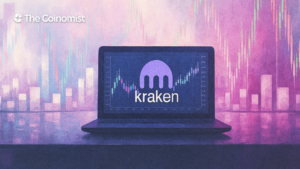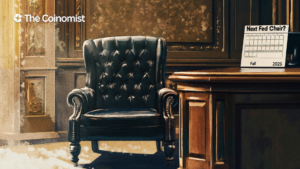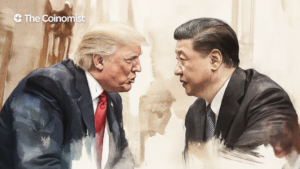Bitcoin Reserve Summit 2025 Heads Online to Tackle National Finance

Bitcoin Reserve Summit 2025 convenes global leaders this April to explore how Bitcoin is reshaping national finance, economic sovereignty, and reserve strategy.
On this page
The Strategic Bitcoin Reserve Summit, a virtual gathering of policymakers, institutional investors, economists, and blockchain professionals, will take place on April 15, 2025.
With over 30 speakers confirmed and heightened interest following recent U.S. policy changes, the event will address a rapidly escalating question: Can Bitcoin play a viable role in national financial strategies?
Until recently, Bitcoin was seen mostly as a hedge, a bet, or a curiosity—hardly something you'd associate with government reserves. But that perception is changing, and fast. As countries reassess how they manage national wealth in a digital world, Bitcoin is no longer just a financial outlier. It's becoming part of the conversation on economic resilience and monetary policy.

A Changing View on Reserves
The idea of adding Bitcoin to sovereign reserves used to sound like something out of a crypto blog. But in early 2025, the conversation took a sharp turn. On March 2, U.S. President Donald Trump announced the creation of a Strategic Bitcoin Reserve, alongside a separate U.S. Digital Asset Stockpile. The move followed a January executive order focused on digital assets seized by law enforcement, but the March announcement expanded the scope, positioning select cryptocurrencies as components of the nation’s broader financial posture.
The Strategic Bitcoin Reserve will focus on managing Bitcoin held by the government, while the Digital Asset Stockpile will include other tokens such as Ethereum, XRP, Solana, and Cardano. While the plan does not explicitly call for active market acquisitions, it marks a clear shift in how digital assets are being classified and viewed at the federal level.
Markets responded quickly:
- Bitcoin rose by 10%,
- Ethereum by 12%,
- Cardano surged 60%.
For global observers, the message was clear: crypto is no longer sitting on the sidelines of state finance.
Against this backdrop, the Bitcoin Reserve Summit becomes the first major event to examine what this shift could mean—for policy, for markets, and for how nations define strategic value in a digital economy.
From Cypherpunk to Statecraft
Hosted by Bitcoin Events, known for organizing blockchain and Web3 summits since 2015, the summit will explore how Bitcoin’s core features—decentralization, scarcity, and low storage costs—are gaining new relevance in state-level financial planning.
Among the keynote speakers is Dr. Saifedean Ammous, author of The Bitcoin Standard, who will open the summit with a session on Bitcoin’s evolution—from a whitepaper to a financial asset with growing geopolitical weight.
Another highlight is “Bitcoin and Geopolitics: A Global Perspective” by Prof. Dr. Naseem Naqvi, examining how countries like the U.S., China, and El Salvador are incorporating Bitcoin into their economic playbooks. For a technology born out of anti-establishment ideals, its role in statecraft marks an unexpected—and significant—turn.
The Summit Agenda: Institutions, Infrastructure, and Ideology
The event’s agenda revolves around three themes: institutional adoption, national security, and the future of financial systems.
In the panel “Institutional Bitcoin Adoption: Lessons Learned,” speakers like Matthew Hougan (Bitwise CIO) will share how organizations are integrating Bitcoin into their reserve models. Legal perspectives will come from Joshua Ashley Klayman Kuzar (Linklaters), who will address compliance, audits, and international standards.
Other sessions to watch include:
- Bitcoin vs. Gold – a practical debate on which asset holds more strategic value in the modern era.
- The U.S. Strategic Bitcoin Reserve – assessing how Trump’s directive could shape global digital asset policy.
- Bitcoin and the Energy Grid – tackling the sustainability debate and the rise of second-layer solutions.
- Building a Secure Bitcoin Reserve Strategy – with actionable guidance on custody, cold storage, and volatility management.
A separate panel will spotlight Texas’s state-level Bitcoin strategy, with Lee Bratcher and Jessi Goostree of the Texas Blockchain Council discussing how the state is positioning itself as a first mover in crypto adoption at the government level.
Who’s in the Room?
Despite being virtual, the summit will gather a strong lineup of voices from across the financial and tech spectrum. In addition to Ammous, Hougan, and Naqvi, the roster includes:
- Daniel Batten (CH4 Capital) – focused on Bitcoin and clean energy
- Loretta Joseph – global blockchain policy advisor
- Edan Yago (BitcoinOS) – protocol-layer perspective
- Robert Hersov (Invest Africa) – insight into crypto’s role in emerging economies
- Joey Garcia (Xapo Bank) – expertise in digital asset regulation and custody
The diversity of participants reflects the summit’s purpose: to bring together finance, technology, and policy at the same table—not in silos.
What’s at Stake
The U.S. isn’t moving in a vacuum. One of the most talked-about sessions, “How Might Other Countries React to the U.S. Strategic Bitcoin Reserve?”, asks whether America’s move could trigger a new phase of global competition—one where countries begin building crypto reserves just as they once stockpiled gold.
Other sessions will take a broader view. El Salvador’s recent policy shifts, including its IMF-backed decision to make Bitcoin acceptance voluntary, will be discussed as a case study in balancing ambition with international pressure. Panels will also cover the risks of over-reliance on digital assets and the challenges of integrating Bitcoin into national accounts.
Critics will be heard too. One session will explore the counterarguments: volatility, ethical concerns, and whether Bitcoin can match the systemic stability of traditional reserves.
The Bigger Picture
For years, Bitcoin’s role in national finance has been a topic of speculation—debated by economists, dismissed by policymakers, and explored in think tanks and whitepapers.
But now, with the U.S. formally taking steps toward a crypto reserve, the conversation is shifting from academic and market theory to real-world policy.
The summit creates space for this transition—from ideas to implementation. It’s not about riding market cycles or chasing hype, but about understanding how digital assets could reshape fiscal strategy, monetary independence, and long-term financial planning.
As the closing session suggests, the question isn’t whether Bitcoin will impact national finance—but how, and on whose terms.
The content on The Coinomist is for informational purposes only and should not be interpreted as financial advice. While we strive to provide accurate and up-to-date information, we do not guarantee the accuracy, completeness, or reliability of any content. Neither we accept liability for any errors or omissions in the information provided or for any financial losses incurred as a result of relying on this information. Actions based on this content are at your own risk. Always do your own research and consult a professional. See our Terms, Privacy Policy, and Disclaimers for more details.
























